Donald Shoup across the decades, on the UCLA campus that was his second home for more than half a century. (Photo credit: UCLA Luskin; Marisa Lemorande)
Farewell to a Legendary Urban Planner, Professor and Parking Guru
Donald Shoup, distinguished professor emeritus whose decades of teaching and scholarship at UCLA greatly influenced the field of land-use planning as well as generations of scholars, students and urban planners, died Feb. 6, 2025, at age 86. Shoup was a titan in the fields of urban planning and specifically parking reform, and his landmark book, “The High Cost of Free Parking,” resulted in the adoption of many of his parking reform ideas in cities around the nation and world.
Remembrances
‘Don believed that data-driven policy solutions shouldn’t just stay locked in academic journals. He made it his mission to make sure those ideas shaped policy right here in L.A.’
— Councilwoman Katy Yaroslavsky at the close of the Feb. 11 Los Angeles City Council meeting adjourned in Shoup’s honor
‘Few scholars have had a real-world impact that can rival Don’s. … His research has quite literally changed cities.’
— Michael Manville, chair of UCLA Luskin Urban Planning
‘He is the only urban planning faculty I know who generated a movement — ‘the Shoupistas,’ as his adoring students but also many others inspired by his writings called themselves.’
— Anastasia Loukaitou-Sideris, distinguished professor of urban planning and interim dean of UCLA Luskin
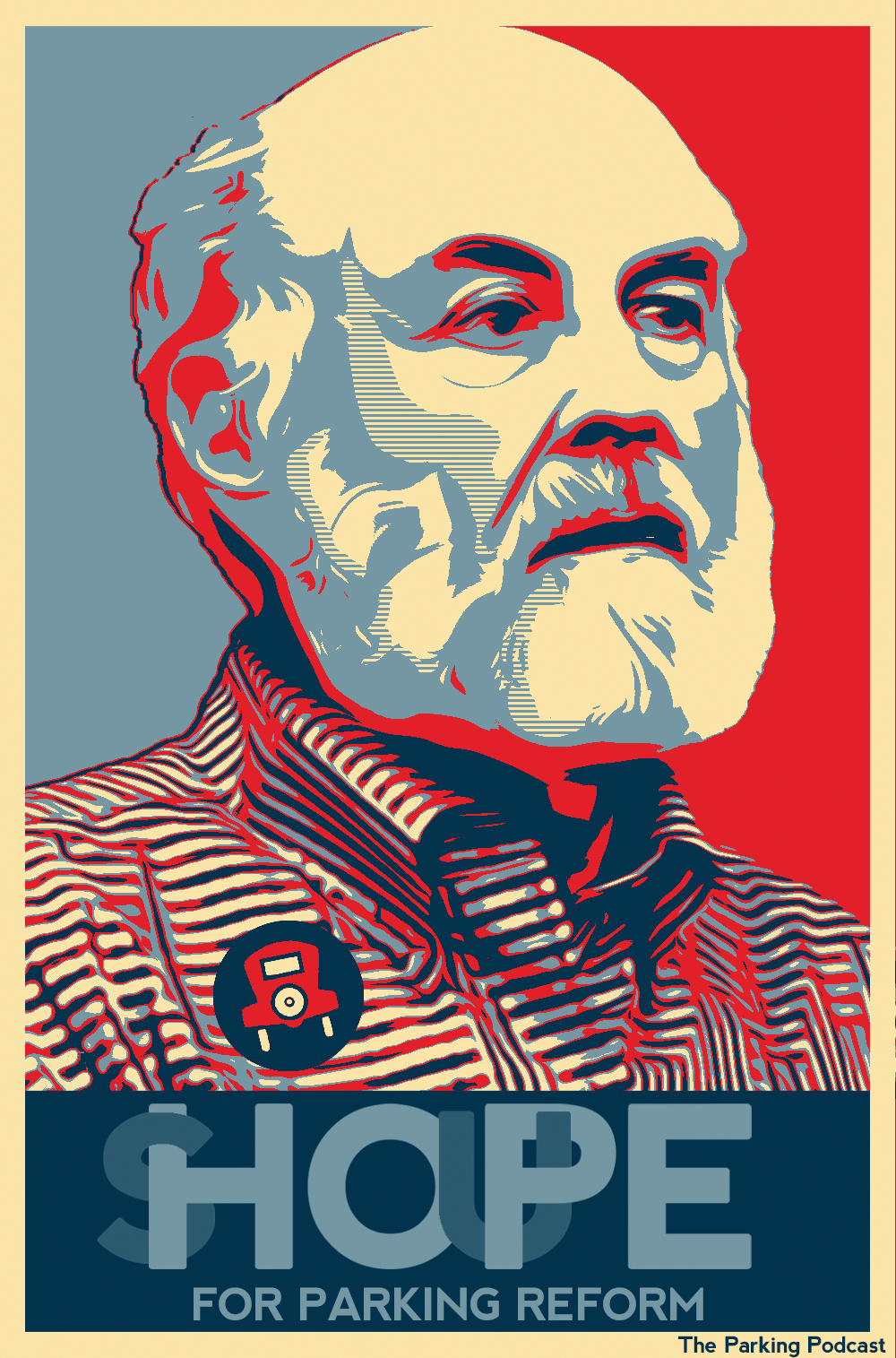
The Long Road to Success
Professor Donald Shoup was the face of parking reform, with the goal of ending arbitrary policies that exact a high toll on the health of communities. After decades of persistence, policies championed by Shoup are taking hold around the country and world — the subject of “The Long Road to Success,” the cover story of the Summer 2024 issue of the Luskin Forum.
About the Artwork: Isaiah Mouw hosts The Parking Podcast, and Shoup was a guest. Mouw had a friend create artwork that the professor adopted as his signature image on social media. It shows Shoup’s face in a style made famous by artist Shepard Fairey. Mouw said, “I saw the Obama ‘Hope’ poster and thought parking reform could use a ‘Shoup’ poster.”
Shoup as Influencer
Shoup was highly sought-after by news outlets seeking to explain land-use planning in a clear, concise and colorful manner. Here is a fraction of his voluminous media appearances and op-eds:
Parking Is Sexy Now. Thank Donald Shoup. — Bloomberg CityLab
Why California’s Parking Reform Matters for Housing and Climate — Governing
How Parking Requirements Hurt the Poor — Washington Post
Parking Under Pressure: Why 3 Cities Raised Prices on the Best Spots — Smart Cities Dive
How L.A. Can Fix Our Scary Sidewalks for the Olympics — Los Angeles Times
Awash in Asphalt, Cities Rethink Their Parking Needs — New York Times
Donald Shoup Gets Animated About Parking — Adam Ruins Everything
Illustrating Parking Reform: Dr. Donald Shoup Plays with Matchbox Cars — Streetfilms
People Behind the Plans: Donald Shoup — American Planning Association
Cities Need Housing. Parking Requirements Make it Harder. — Bloomberg CityLab
Bruin to Bruin: Donald Shoup — Daily Bruin Podcasts
More on Shoup’s personal website, shoupdogg.com
Images of Shoup
Decades of teaching, research and advocacy turned Shoup’s ideas into a policy priority.
Shoup explains his seminal 2005 work, “The High Cost of Free Parking.”
Shoup, sporting a “Parking Matters” cap, with wife Pat at his retirement celebration in 2015.
Distinctions
A few of Shoup’s numerous awards and honors recognizing his contributions to the field of urban planning.
National Excellence Award for a Planning Pioneer, American Planning Association
Seaside Prize, Seaside Institute
Distinguished Educator Award, Association of Collegiate Schools of Planning
Fellow, American Institute of Certified Planners
Edward A. Dickson Emeritus Professorship Award, UCLA
Chester Rapkin Award, Association of Collegiate Schools of Planning
Planning Pioneer Award, California Chapter of the American Planning Association
Planning Pioneer Award, Los Angeles Chapter of the American Planning Association
The Shoup Endowed Fellowship Fund
Tribute gifts can be made to the Donald and Pat Shoup Endowed Fellowship Fund in Urban Planning at the UCLA Luskin School of Public Affairs, which will support fellowships for graduate students focusing on transportation studies. Tribute gifts to the UCLA Center for Parking Policy will carry forward Donald’s pioneering research, ideas, and impact on urban planning and transportation policy.
Memorial Service
On Oct. 3, 2025, hundreds of current students, alumni, faculty, staff, community activists and parking enthusiasts gathered at the Meyer and Renee Luskin Conference Center to honor the life and legacy of Distinguished Professor Donald Shoup.
The afternoon began with a book talk on “The Shoup Doctrine: Essays Celebrating Donald Shoup and Parking Reforms” and the official launch of the UCLA Center for Parking Policy. Later in the day, speakers took the stage to share their stories about Shoup’s legendary wit and his uncanny ability to steer nearly any conversation toward parking — always with humor, insight, and enthusiasm.
View the full story and photos from the event
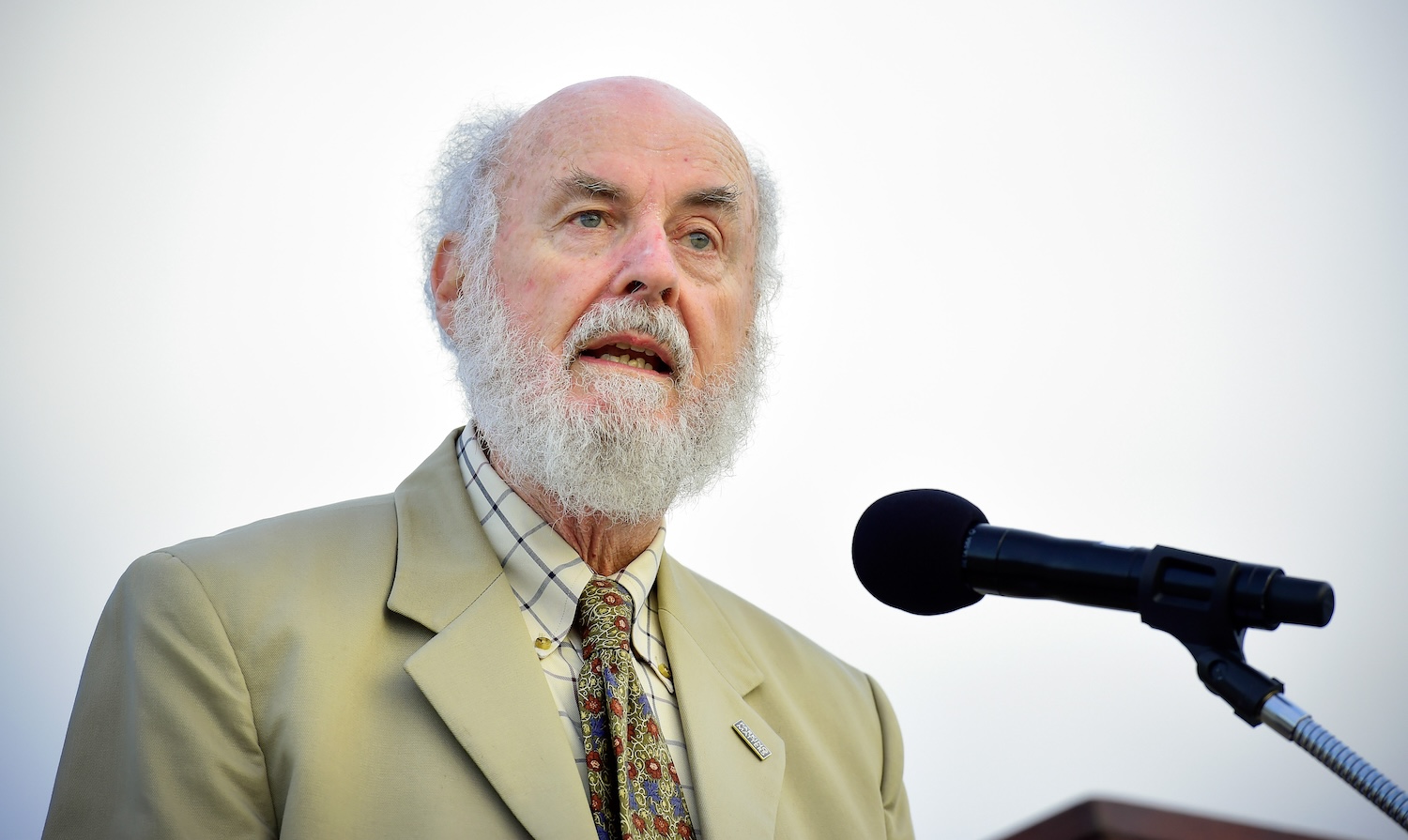
In His Words
“The high cost of free parking is paid by everyone, even people who are too poor to own a car. … A city where everyone happily pays for free parking is a fool’s paradise.”
Tributes
Upon news of his passing, social media posts and tributes to Shoup have been pouring in. A selection:
“Donald’s curiosity, intelligence, passion, generosity and kindness allowed him to not only expose the critical problems with modern parking policy, but to also ignite and nurture a movement to change them and make the world a better place.” — Parking Reform Network
“Everything he did, he did well because he would research exactly how to do it and what he should be doing.” — Pat Shoup, Don’s wife of nearly six decades, in the Daily Bruin
“As he gathered up jaw-dropping data and orthodoxy-shattering insights about parking, his work eventually started to reshape the way cities function and feel.” — Wall Street Journal
Shoup’s “provocative and occasionally amusing 734-page treatise on the economics of parking sparked reforms in thousands of cities, helping reduce traffic, create green space and make cities more walkable.” — New York Times
“Ideas are only any good if there are people to put them into practice. … We should all be so lucky, when our time on the meter runs out, to leave a legacy like his.” — Henry Grabar, author of “Paved Paradise: How Parking Explains the World”
“The beauty of the Shoupian worldview is that it both explains the dire condition of so many cities and plots paths to recovery.” — William Fulton, California Planning and Development Report
“The UCLA urban-planning professor … was not merely the top scholar in his field but its Elvis and its Lennon and its Jagger, all bundled into one tweed sport coat.” — Curbed
Arbitrary parking minimums, Shoup thought, “were clearly a product of the reptilian cortex, the most primitive part of the brain, and they well deserved one of the best of his large collection of puns: ‘Aparkalypse Now!’ ” — The Economist
“Shoup has a strong claim on being the scholar who will have had the greatest impact on your day-to-day life, radically changing how we approach the unglamorous problem of how and where we park our cars — and, in turn, where we can live, how we move about and the form our cities take.” — Nolan Gray, UCLA Luskin PhD student and author of the book “Arbitrary Lines: How Zoning Broke the American City and How to Fix It”
“I think that parking is important for all of you. That the average car is parked 95% of the time. And some of your listeners were probably even conceived in a parked car.” — Donald Shoup in a 2005 NPR audio clip, shared in a remembrance on All Things Considered
“I read Professor Shoup’s work when I was in planning school, and his research on parking completely opened my eyes. Now, I have the privilege of working on policy directly related to parking, transportation, and land use in Los Angeles with a handful of Shoupistas on my own staff, some who studied directly under him.” — Los Angeles City Council member Nithya Raman
“His legacy looms large over the transportation strategies for L.A.’s megaevents. … The fact that L.A. could even aspire to host a ‘car-free’ games owes a great debt to Donald Shoup repeating, for decades, that just because you’re going somewhere in this city, you’re not automatically guaranteed a free parking spot when you get there.” — Alissa Walker, Torched
“Over more than a half century of clear writing, clever quips and exhaustive scholarship, Donald Shoup became one of the world’s foremost experts and influencers on a topic seemingly as mundane as it is universal: parking.” — Los Angeles Times
” ‘The High Cost of Free Parking’ made parking interesting and explained how it is vitally important. It kicked off an era of parking reform that is helping to remake cities and suburbs throughout America.” — Robert Steuteville, Congress for the New Urbanism
“Through his work on parking, land use and transportation, he literally reshaped the landscape of cities across the world and here in Westwood, where he lived and worked for decades.” — North Westwood Neighborhood Council
“Farewell to our friend Donald Shoup, the guru who showed how parking can make and break a city. He was decades ahead of his time and we’re still trying to catch up with him. The legacy of his life and his times will never expire.” — Janette Sadik-Khan, former New York City Department of Transportation Commissioner
“Donald Shoup explained to Americans the high cost of free parking, showing the way toward more walkable downtowns and affordable housing. … Through his intellectual leadership, the trend of subsidizing cars at the expense of people is beginning to buckle.” — U.S. Rep. Jake Auchincloss (D-MA)
“Donald Shoup may have spent more time thinking about parking than anyone in the United States. … He focused on the problem of how to price parking spaces in downtown areas to make cities more vibrant and attractive places.” — News Center Maine
Share Your Memories
Leave a Reply
Want to join the discussion?Feel free to contribute!
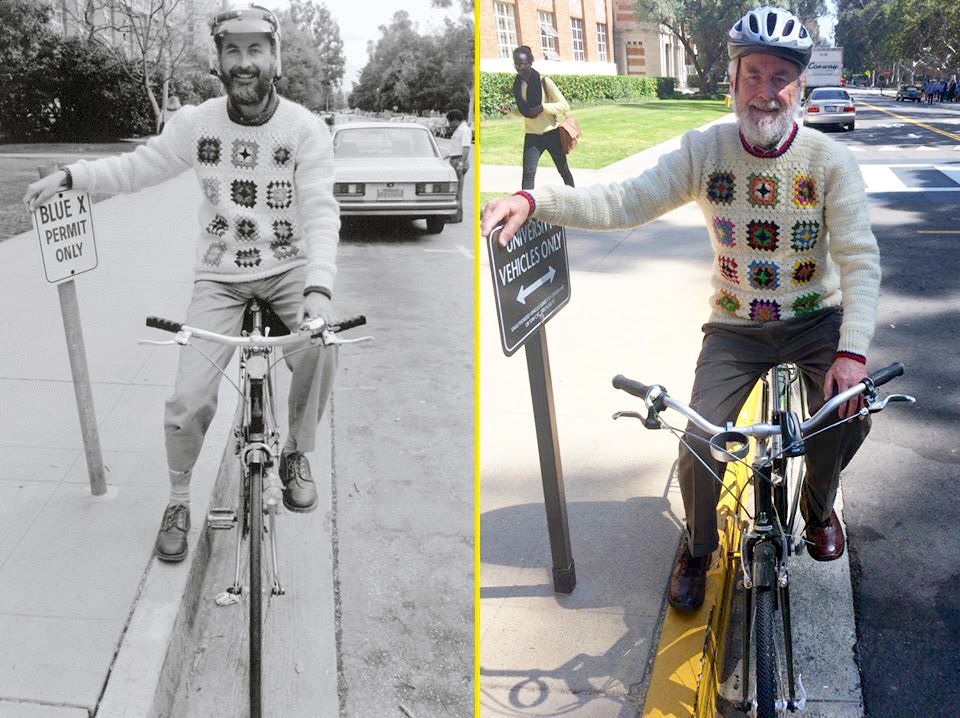
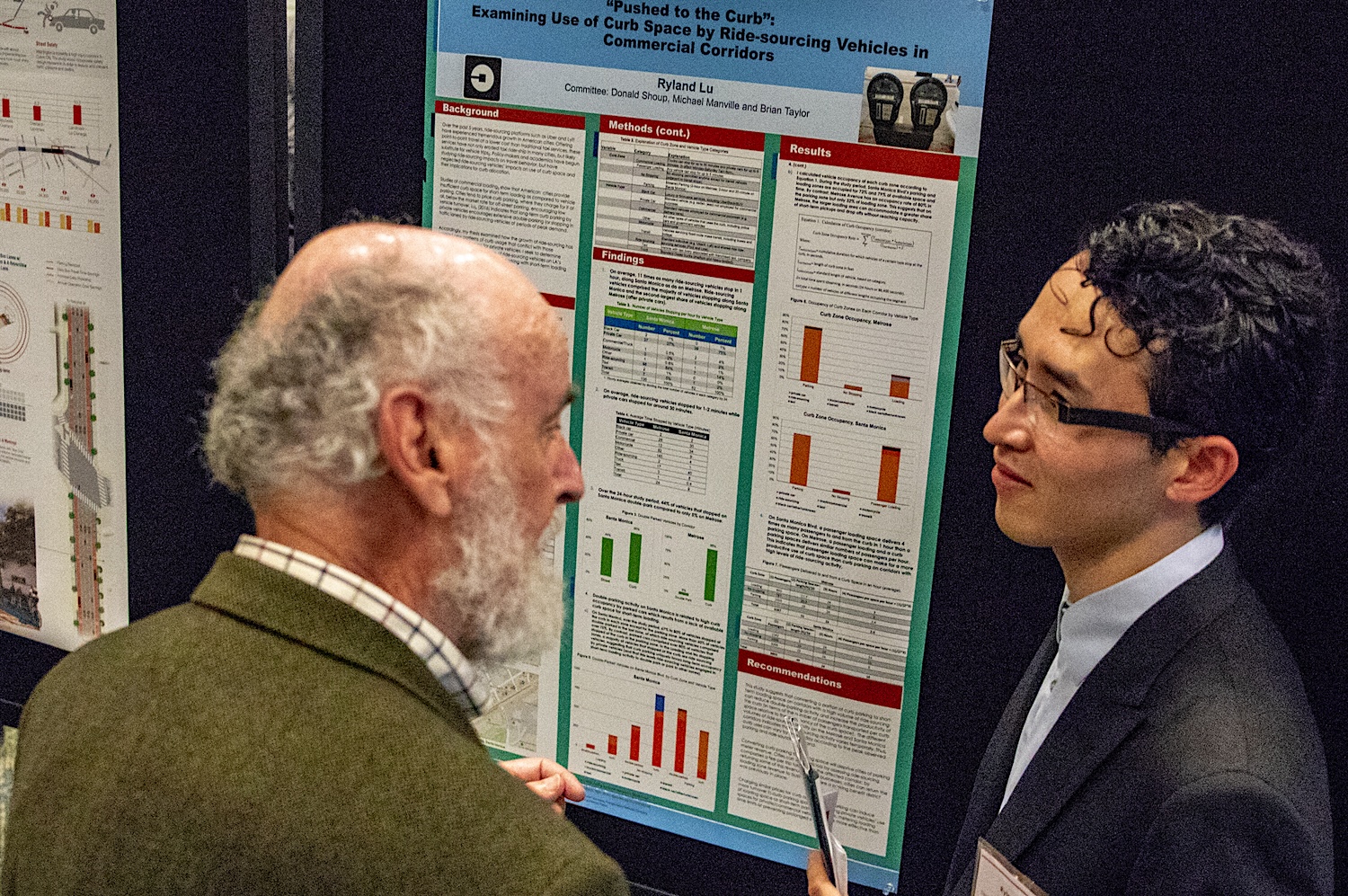
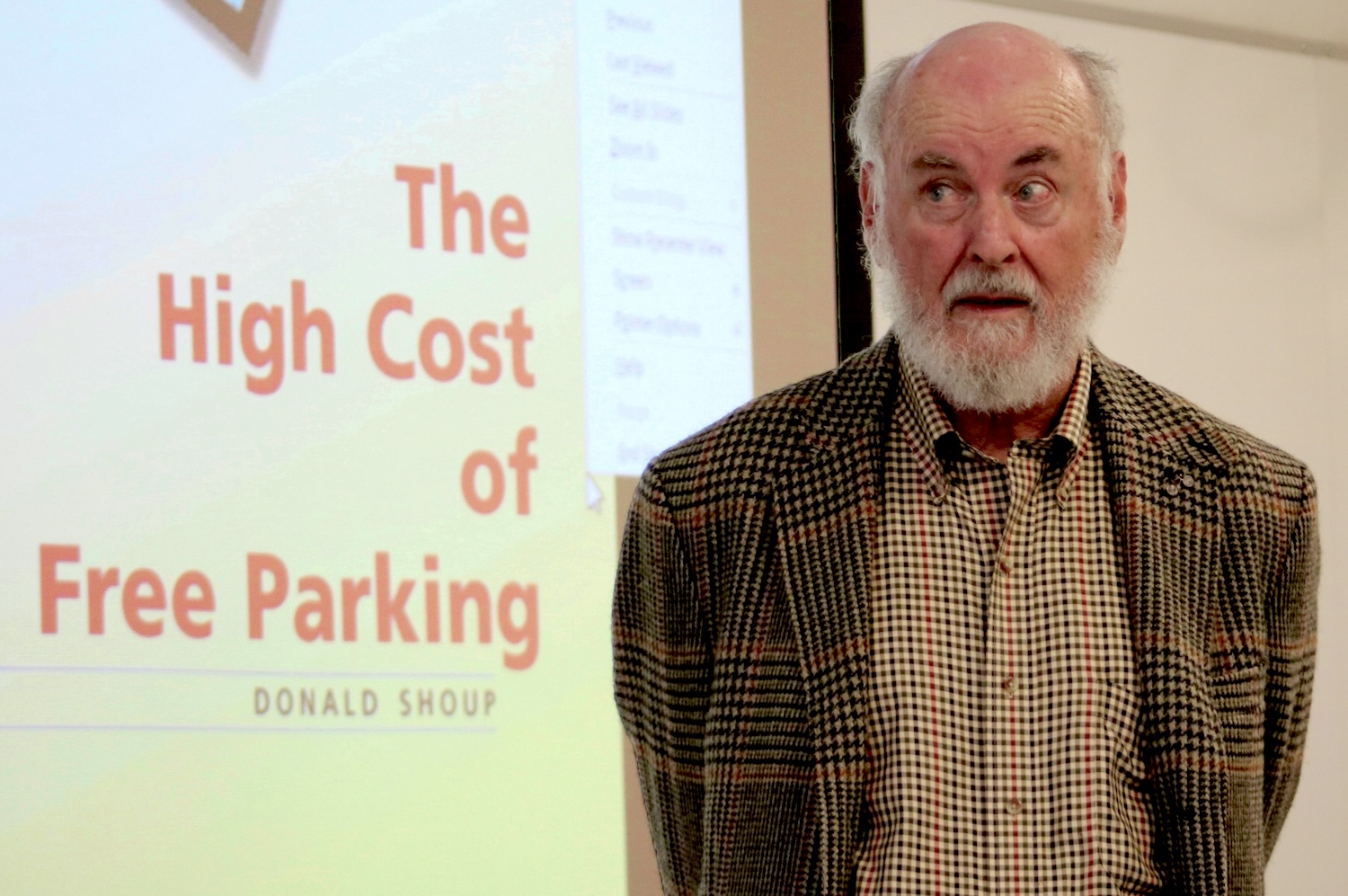
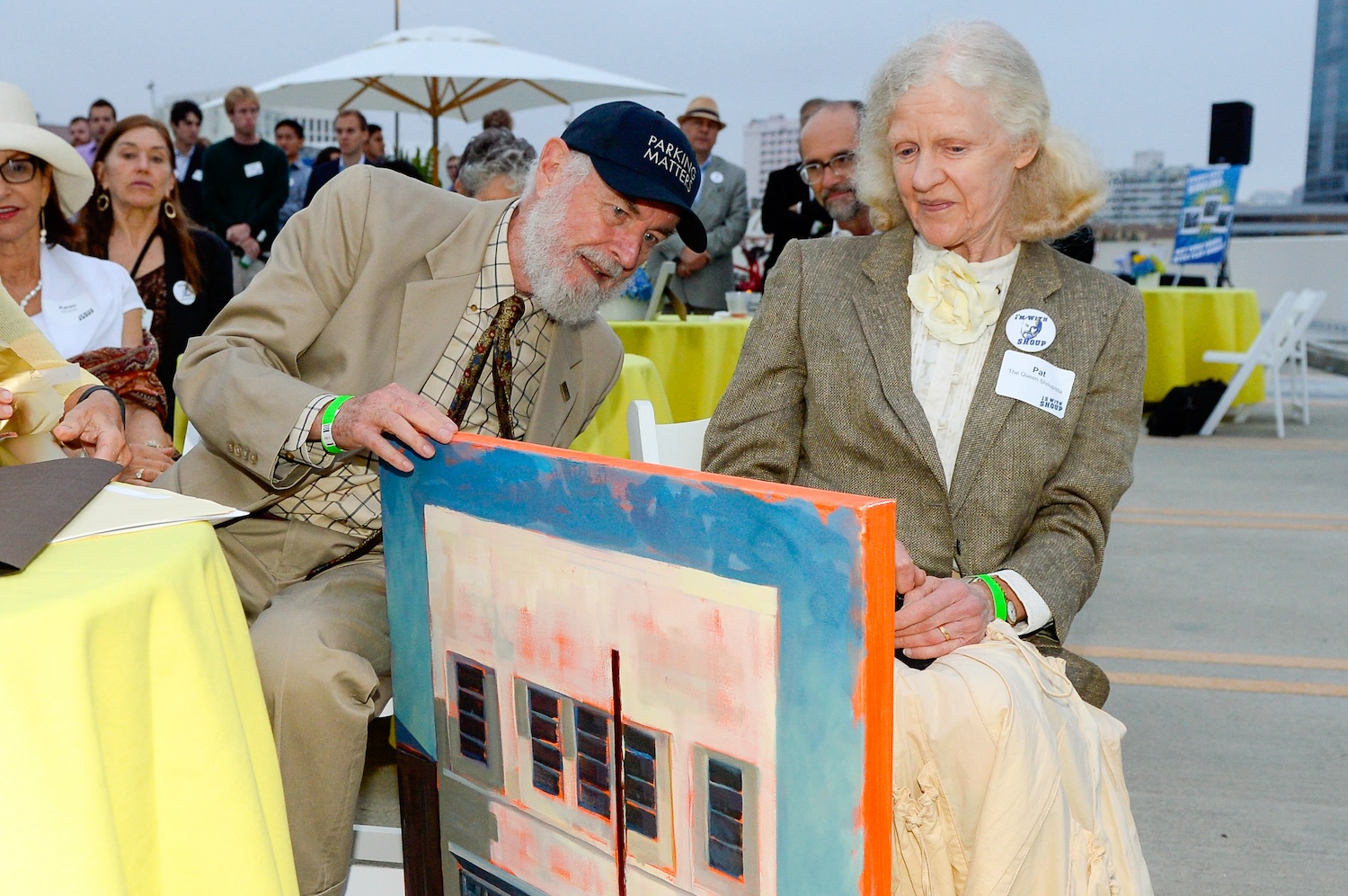

In Donald Shoup’s class I learned to question the conventional ways of looking at distribution of resources, and the ways they become accessible to the people in an urban settings. I remember a line from him “it is not always wrong to question the conventional wisdom”
I was very sad to hear about the passing of Donald Shoup last week. We were colleagues for 14 years in urban planning at UCLA and I got to know him and his thinking a little bit during that time. The last time I communicated with him was after Marty Wach’s funeral in 2021 when Don gave an eloquent eulogy to Marty.
Don was an extraordinary thinker who was underappreciated for much of his career. I was fortunate to have co-taught a course with him sometime in the 1980s and saw first-hand how he thought about urban phenomena. Later on, I had my survey research course produce a national survey for him on parking policies of major private companies. Rather than address some of the so-called ‘big issues’ (e.g., regional economic growth, affordable housing shortages, transportation inaccessibility for low income populations; environmental pollution), Don focused on a very narrow problem, parking. Who, after all, researched parking other than parking meter companies? Yet in doing that, he opened up a ‘keyhole’ into dysfunctional urban processes such as congestion, pollution, difficulties in shifting commuters to transit, and processes restricting central city development.
He was a very curious individual who actually spent time observing people’s parking behavior. Combined with his solid economics background, he was able to conceptualize how low parking prices affected travel behavior. For example, he would often watch people trying to park in Westwood, the commercial district adjacent to the UCLA campus. He noticed that drivers would go around the block multiple times in order to find a free parking spot (early 1980s). He came up with rough estimates for the additional miles that were taken up by people searching for free parking which, in turn, contributed to the congestion in Westwood. Scaling up those observations in Westwood to the millions of drivers in Los Angeles who spent time searching for cheap parking and one could see the burden that was placed on congestion and air quality for the region as a whole.
In the course that we co-taught, we explored the effects of free parking on a transit bus that had been set up on weekends to shuttle people in and out of Westwood. The weekends in Westwood were very crowded and the transit agency agreed to put in a shuttle. However, we noticed that few people used the shuttle bus, primarily they were searching for free parking. Again, scaling this observation up to a city level and Don was able to argue that transit services to downtown Los Angeles were underutilized because of, again, low public parking prices.
When Don initially brought these observations to the attention of policymakers in Los Angeles, he was usually met with cynicism. It was as if he was challenging one of the fundamentals of American life, namely the “right for free parking”. He pointed out that as long as public parking was subsidized by low hourly rates, congestion and air quality was going to remain bad in the commercial areas, including in the downtown area. Since then, public parking prices in downtown Los Angeles and many other cities have increased substantially with elected officials perhaps not realizing that Don was the theorist who brought this phenomenon to public attention (as John Maynard Keynes once remarked – I’m paraphrasing; Keynes was more eloquent, “Listen to a politician talk and you will hear the echoes of an economist long since dead”). Well, Don Shoup was such an economist. Fortunately, in the last couple of decades, his contributions have been recognized and have been lauded.
As a person, he was a lovely individual as was his wife, Pat. He was a quiet, thoughtful person but with a delightful sense of curiosity. When you approached him, he immediately would start talking about some phenomenon that he was interested in (usually related to parking) and go off on a theoretical discussion of how the phenomenon was mispriced. I learned an enormous amount from him for which I am very grateful. And he experienced a lot in his life. Even though he was born in Long Beach, his parents moved to Honolulu when he was an infant. He told me that he remembered the bombing of Pearl Harbor on December 7, 1941; he was around 3 years old but saw planes flying overhead and heard lots of noise and activity. That must have had a huge influence on his life, as it would anyone who experienced the event.
He will be sadly missed by those of us who knew him. But his influence will live on long after this time. As a scholar, he changed our understanding of transportation behavior and left a big legacy for those who follow.
Don was my graduate advisor in the Social Policy and Analysis Program at GSAUP 1986 – 1988. After graduation and I did not see and speak with Don until the LA CoMotion conference in 2017 in Los Angeles. I will always be thankful for Don’s optimism and encouragement at GSAUP. I remember the supply and demand curve he had on the back of his office door, and I also remember not understanding his explanation of the graph and being too embarrassed to admit that, thinking to myself so much for my micro and macroeconomic undergraduate classes. Don also approved my speech submittal for the 1988 UCLA school-wide graduation speech competition, although I did not win, I have always appreciated Don’s support.
Time passes and now sadly Don has passed.
My serendipitous introduction to Don occurred in 1976. I was city manager of Claremont at the time and I would occasionally drive to Westwood to have lunch with Don, Marty Wachs, LeRoy Gramer, Don Hagman and others who became valued friends in order to solve the world’s transportation (and other) problems. We didn’t quite get there but Don certainly did with his scholarship and contributions.
Later, after I left Claremont, over the next 30 years, our long-time, long-distance friendship was invigorated and enhanced when Don and I attended the annual Arrowhead Transportation Conference.
I became a better city manager and transportation director because of Don – he wrote and spoke in a language which, as a practitioner, I could understand and remember.
Even more than his unparalleled scholarship I valued his wit, his sardonic optimism and his encouragement to me – for all of us – to keep up the fight.
Thank you Don
Norm King
MUP, GSAUP Grad, 1991. I still remember the vivid ways Prof. Shoup described the pecking order of parking on the UCLA campus. He made the economics of things personal and challenged us to change our world.
– so glad I was a witness to his life & work.
Don was the best office neighbor a junior professor could have. He was curious and thoughtful, ready to hear you out and give you his take on your own research before rewarding you with his latest anecdote about parking. His wisdom about how to communicate and educate was infectious because of his positive energy and because it was clearly so effective. Although I was not technically his student, I benefitted tremendously from working with him. He was a role model in many ways, and we’ll miss him dearly.
I was very lucky to have met and learnt from Prof. Shoup while at UCLA – he literally took an elevator pitch from me, and then rode the elevator back down to where we had started to give me advice on how to improve it! A tremendous thinker, researcher, and human being. He will be missed.